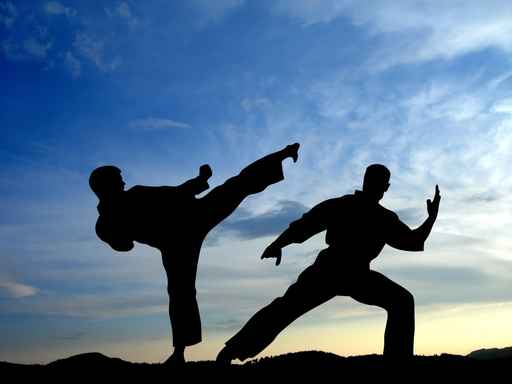Chinese novelist: Gu Long – must read for martial-arts moviegoers

One of the most amazing things about learning a new language is being able to read the literature and understand the culture and all of the richness in the connotation, diction, and other stylistic choices made by the author. I would know! When I first started reading novels in English it was like turning on a light. I had a much clearer picture of what western culture really was, and I was better able to understand the intricacies and beauty of the English language. At this moment, you probably feel that you would never be able to read Chinese literature if you’ve just started your Chinese learning course.
Fortunately, for all of us beginning to learn Chinese, the author I’m going to share with you today has had many of his works translated and/or made into movies and television shows, so even a beginner can enjoy the stories. Also, his style isn’t complex; it typically features short sentences and lots of dialogue. So, if you’re looking for a Chinese novel to tackle first, one of his wouldn’t be a bad choice! Who is he? His name is Gu Long (古龍 gǔlóng), and he’s very famous in Asia for helping to develop the wuxia genre (武侠, martial arts novel, wǔxiá xiǎoshuō).
What is wuxia?? Wuxia (武侠) means “martial arts hero” in Chinese. The wuxia genre is action adventure fiction that focuses on martial artists as the main protagonists. Traditionally, it was a genre constrained to books, but more recently, its popularity has led to the creation of video games, television shows, cartoons, and even Chinese opera performances based on the genre.In wuxia, the main hero usually follows a code of chivalry, just like medieval knights! Actually these heroes are a lot like cowboys, knights, and samurai; their adventures typically consist of helping others and making sure that justice is served. A typical wuxia novel begins with a young male hero from a lower-class background. After experiencing a personal tragedy, the hero undergoes many challenges and receives martial arts training in different styles from various teachers. After all of this, the hero becomes a martial arts expert and sets out to right the wrongs that have been done to him or those close to him. And yes, this may sound very familiar to you; there are many popular martial arts movies that follow this style.
Where Gu Long’s style differed from more traditional authors, was that instead of focusing on Chinese history, philosophy, and culture, he took a more westernized approach to writing. This meant that his work focused more on character interaction, action, witty dialogue, and climactic moments. This twist on the genre skyrocketed Gu Long to fame very quickly in both Taiwan and China.
As a child, I fondly remember watching a Chu Liuxiang series on television and reading the novel. Chu Liuxiang (楚留香, chǔliúxiāng) is very similar to the West’s Robin Hood. As a fictional protagonist, he’s smart and cunning, but also compassionate. Like Robin Hood, he robs the rich to help the poor. One of his nicknames in Chinese is “Daoshuai” (盜帥 dàoshuài). There have been numerous films, television series, and novels written about the character. Oh, also he lives in a houseboat and only uses a fan as his only weapon. How cool is that!
Sources and Suggested Reading:
Wikipedia Entries:
Gu Long – http://bit.ly/1daPygF
Chu Liuxiang – http://bit.ly/1jK6RXE
Wuxia – http://bit.ly/MbpY0R





